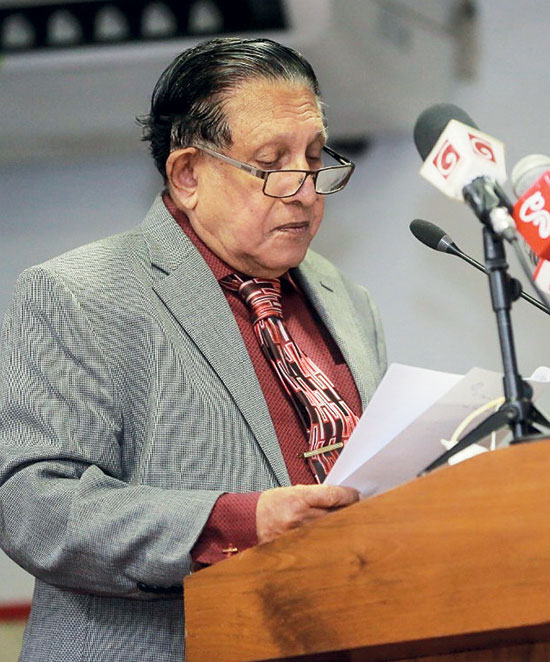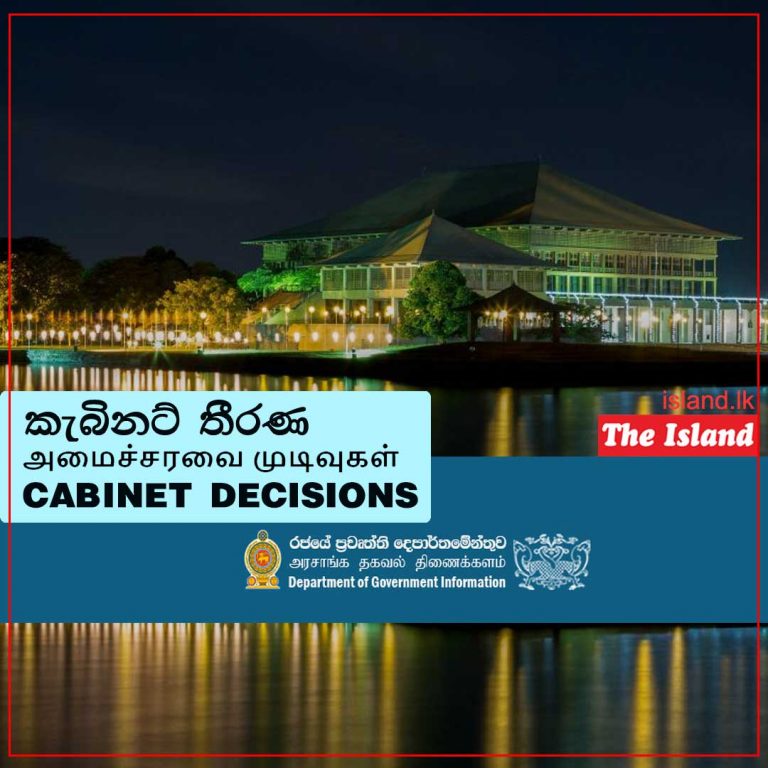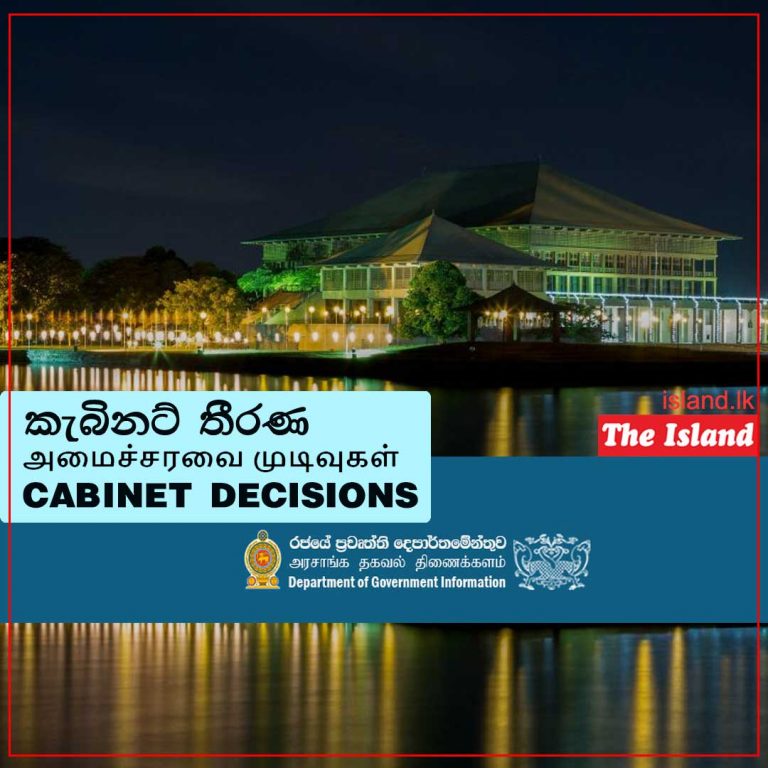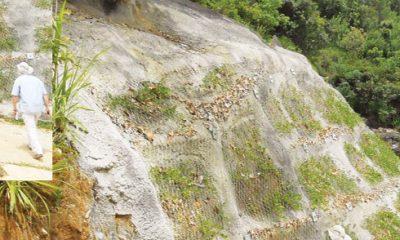News
High priority for development of Kelani Valley urged at the Philip Gunawardena commemoration

Responsible authorities since the Dutch and English colonial rulers have failed to pay sufficient attention to the problems of floods and the development potential of the Kelani River valley, said Senior Irrigation Engineer Anton Nanayakkara last week delivering a special lecture at the 50th Philip Gunawardena Commemoration meeting at the Sri Lanka Foundation.
Nanayakkara said: “The Kelani River valley is second only to the Mahaweli river valley. It has enormous potential to contribute to the development of this country. However, no proper attention has ever been paid by to this subject since the days of the Dutch and British rulers. It is sad to observe this untapped potential while countries elsewhere have seized opportunities to get the best of their rivers on either bank.”
He pointed out that a team of Russian experts had in 1961 pointed out that excess water of the Kelani River could be naturally diverted to Kurunegala. Sri Lanka’s next mega development project should be the Kelani Valley Multipurpose Development Scheme.
Nanayakkara said that Philip Gunawardena was the first to come up with the idea of a Kelani Valley Multipurpose Development Scheme that could bring about a new national economic and social awakening in Sri Lanka. On Nov 16, 1937, Gunawardena, as Member for Avissawella, presented a special motion to the State Council proposing a multi-purpose development program for Kelani River flood management and the Kelani Valley.
It read: “That this council is of opinion that immediate concrete and effective steps should be taken to prevent further pauperization of the people through periodic floods which damage their crops and dwellings and turn cultivable land into a mosquito-breeding swamp, and to this end desires the appointment of a Commission, with recognized expert from abroad, having practical experience in flood control schemes, to inaugurate a comprehensive scheme of flood – control for the Kelani river, coordinated with the work of irrigation, water supply, drainage and hydro – electricity.”
Speaking further on his proposal, Gunawardena pointed out that no serious considerations have been given to control the floods in the Kelani River and that the Government is acting in a confused manner in this regard. “… this is a question that has baffled many engineers, many statesmen and a good many laymen. However, since about 1873, I must say, that no serious effort has been made by the Government to control the floods of the Kelani River.
“It is the matter known to everybody in this island that annually the floods in the Kelani valley destroy houses, crops, livestock and even take human lives, and it is estimated that annually the country loses, as a result of the flood, somewhere in the neighborhood of Rs. 200,000. That is a very big sum. But apart from the actual loss in property and life, the entire economic life in the Kelani valley is brought to a standstill for several days in the year.”
Nanayakkara said that this development project, which should be given high priority, is critically important to the Colombo, Gampaha, Ratnapura, Kegalle, Nuwara Eliya and many other districts. It needed to be accorded priority in future development projects. Philip Gunawardena was the first to present such a proposal but that, despite its importance, did not happen.
“We have made so many policies but none of them has been implemented in a manner that could bring transformative change,” Nanayakkara said.
Among those present at the commemoration lecture were the Anunayake of Malwatte Chapter Ven Dimbulkumbure Wimaladhamma Nayaka thero, Chancellor of the Colombo University Ven Muruttettuwe Ananda thero, Speaker Mahinda Yapa Abeywardena, Irrigation Minister Chamal Rajapaksa, Labour Minister Nimal Siripala de Silva, Water Supply Minister Vasudeva Nanayakkara, Lands Minister SM Chandrasena, Indigenous Medicine Promotion State Minister Sisira Jayakody, MPs Jagath Pushpakumara, Jayantha Samaraweera, Premnath Dolawatte, Suren Raghavan, Yadamini Gunawardena, Prof Gamini Samaranayake and the ambassadors of China, France, Cuba and Vietnam.
Latest News
Cabinet approves recruitment of 2,284 to government service

The Cabinet of Ministers granted approval to the proposal submitted by the Prime Minister to recruit 2,284 to the government service as per the recommendations of the ‘Committee appointed to review the recruitment process of the Government Service at its meeting held on 14.11.2025.
1. Ministry of Education, Higher Education and Vocational Education 196
2. Ministry of Health and Mass Media 480
3. Ministry of Public Administration, Provincial Councils and
Local Governments 04
4. Ministry of Finance, Policy Planning and Economic
Development 19
5. Ministry of Transport, Highways and Urban Development 778
6. Ministry of Justice and National Integration 222
7. Ministry of Trade, Commerce, Food Security and Cooperative Development 107
8. Ministry of Defense 73
9. Ministry of Fisheries, Aquatic and Ocean Resources 20
10. Ministry of Public Security and Parliamentary Affairs 21
11. Ministry of Industries and Entrepreneurship Development 36
12. Ministry of Buddha Shasana, Religious and Cultural Affairs
04
13. Ministry of Plantation and Community Infrastructure
Facilities 02
14. Ministry of Agriculture, Livestock, Lands and Irrigation 74
15. Western Provincial Council 230
16. Uva Provincial Council 08
17. North Western Provincial Council 08
18. Finance Commission 02
Latest News
Cabinet green light to obtain a grant from the Asia Pacific Disaster Response Fund for post – disaster relief and rehabilitation activities

On a request made by the government of Sri Lanka, the Asian Development Bank has given its concurrence to provide a grant of United States dollars 3 million under Asia Pacific Disaster Response Fund.
It is expected to supply materials required for providing essential life security services for the communities affected, from the said grant.
Therefore, the Cabinet of Ministers granted approval to the proposal submitted by the President as the Minister of Finance, Plan Implementation and Economic Development to enter into the relevant agreements with the Asian Development Bank to obtain the said grant.
Business
Cabinet approves establishment of two 50 MW wind power stations in Mullikulum, Mannar region

Adhering to the broad plan of the Government to reach the objective of accomplishing 70% of the country’s electricity supply from renewable energy sources by the year 2030, the approval of the Cabinet of Ministers was granted on 10.02.2025 to invite requests for resolutions from interested developers of the private sector in order to implement the Mullikulum Wind Power – 100 Mega Watts (two (02) wind power stations of
50 Mega Watts each) on the basis of construction, ownership and execution with a monitoring period of 20 years.
Accordingly, requests for proposals have been called to implement the relevant project by adhering to the international competitive bidding methodology, and seven (7) prospective project proposals were submitted.
Evaluating the said proposals, based on the recommendations submitted by the negotiation committee appointed by the Cabinet of Ministers, the Cabinet of Ministers granted approval to the resolution furnished by the Minister of Power to award the contracts of establishing the two (02) 50 Mega Watts Wind
Power Stations to Consortium of Vidullanka PLC & David Pieris Motor Company (Lanka) Limited and WindForce PLC.
-

 News4 days ago
News4 days agoOver 35,000 drug offenders nabbed in 36 days
-

 Features2 days ago
Features2 days agoFinally, Mahinda Yapa sets the record straight
-

 Business6 days ago
Business6 days agoLOLC Finance Factoring powers business growth
-

 News3 days ago
News3 days agoCyclone Ditwah leaves Sri Lanka’s biodiversity in ruins: Top scientist warns of unseen ecological disaster
-

 News6 days ago
News6 days agoCPC delegation meets JVP for talks on disaster response
-

 News6 days ago
News6 days agoA 6th Year Accolade: The Eternal Opulence of My Fair Lady
-

 News4 days ago
News4 days agoRising water level in Malwathu Oya triggers alert in Thanthirimale
-

 Features5 days ago
Features5 days agoThe Catastrophic Impact of Tropical Cyclone Ditwah on Sri Lanka:










